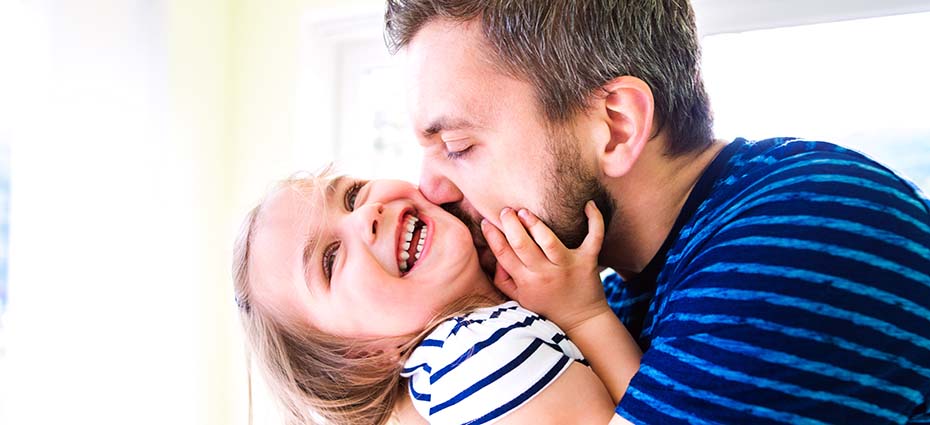
Though I am still learning how to be a father, I’ve made some observations worth sharing. Yes, there are dads out there who have parented for longer, but I also know that every parent has a unique perspective. Mine happens to be influenced by years of work in emergency preparedness. Allow me to expand on some lessons I’ve learned:
-
Prepare to be around
It is no coincidence that June hosts National Men’s Health Week. Men’s Health Week was created to encourage men and boys to make their health a priority. For a guy like me—a father in his late 30s—that means taking steps to protect and improve my health, and increase my chances of being around for my daughter. Specifically, I need to:
- Eat healthy. Eat a variety of fruits and vegetables every day. And limit foods and drinks high in calories, sugar, salt, fat, and alcohol.
- Keep track of my numbers for blood pressure and cholesterol.
- Know and act on my family health history. Share it with my doctor at my next visit.
- Get a regular check-up. Certain diseases and conditions may not have symptoms, so checkups help identify issues early or before they can become a problem. For me, being better about getting regular check-ups starts with realizing that I’m not a twentysomething anymore; I’m barely a thirtysomething.
-
Prepare to get sick
This winter our household was hit hard with norovirus … twice. You can get norovirus from an infected person, contaminated food or water, or touching contaminated surfaces. The virus causes stomach pain, nausea, diarrhea and vomiting. Symptoms can be serious for some people, including young children.
Norovirus is more contagious than photos of cats on the internet. Each year on average in the United States, norovirus causes 19 to 21 million cases of acute gastroenteritis (or inflammation of the stomach and/or intestines).
So, when my daughter brought home a “stomach bug” (as norovirus is sometimes called), my wife and I were pessimistic about our chances of not getting sick. You try to explain social distancing to a parent of a sick child or a 2-year-old who has yet to figure out going potty, let alone how to stop the spread of germs.
Still, neither my wife nor I wanted to get sick. We’ve lived long enough to know that norovirus can sideline a person with nausea, vomiting and diarrhea for a few days. There is no vaccine to prevent norovirus, so we did the best we could to protect ourselves:
- Washed our hands with soap and water; especially after changing diapers or cleaning up vomit.
- Cleaned and disinfected surfaces with a bleach-based cleaner.
- Washed soiled clothes and linens, including crib sheets, immediately.
In the end, the entire family got sick. It’s just a guess, but my daughter throwing up in my face is probably what did the trick me sick.
-
Prepare to be unprepared
When my daughter arrived, any emergency plans my wife and I had were made as outdated as the cargo shorts that I refuse to surrender to the fashion police. I’ve been playing catch up ever since.
If you’re a new or expecting father, there’s no better time than the birth of a child to review your emergency plans and update your supplies kit. Items to consider including:
- Baby food and/or formula
- Bottles
- Diapers
- Baby wipes
- Diaper rash cream
- Clean clothes
Remember to account for our child’s unique needs like probiotic drops, wants like pacifiers, and comforts like a favorite toy or “lovely.”
Fast forward two years and my darling daughter now prefers different foods, wears larger clothes and has different needs than she did a few months ago. Review and exchange the contents of your supply kit every six months. Check the expiration dates on food, water, medicine and batteries. An emergency kit is only as useful as its contents at the time of an emergency.